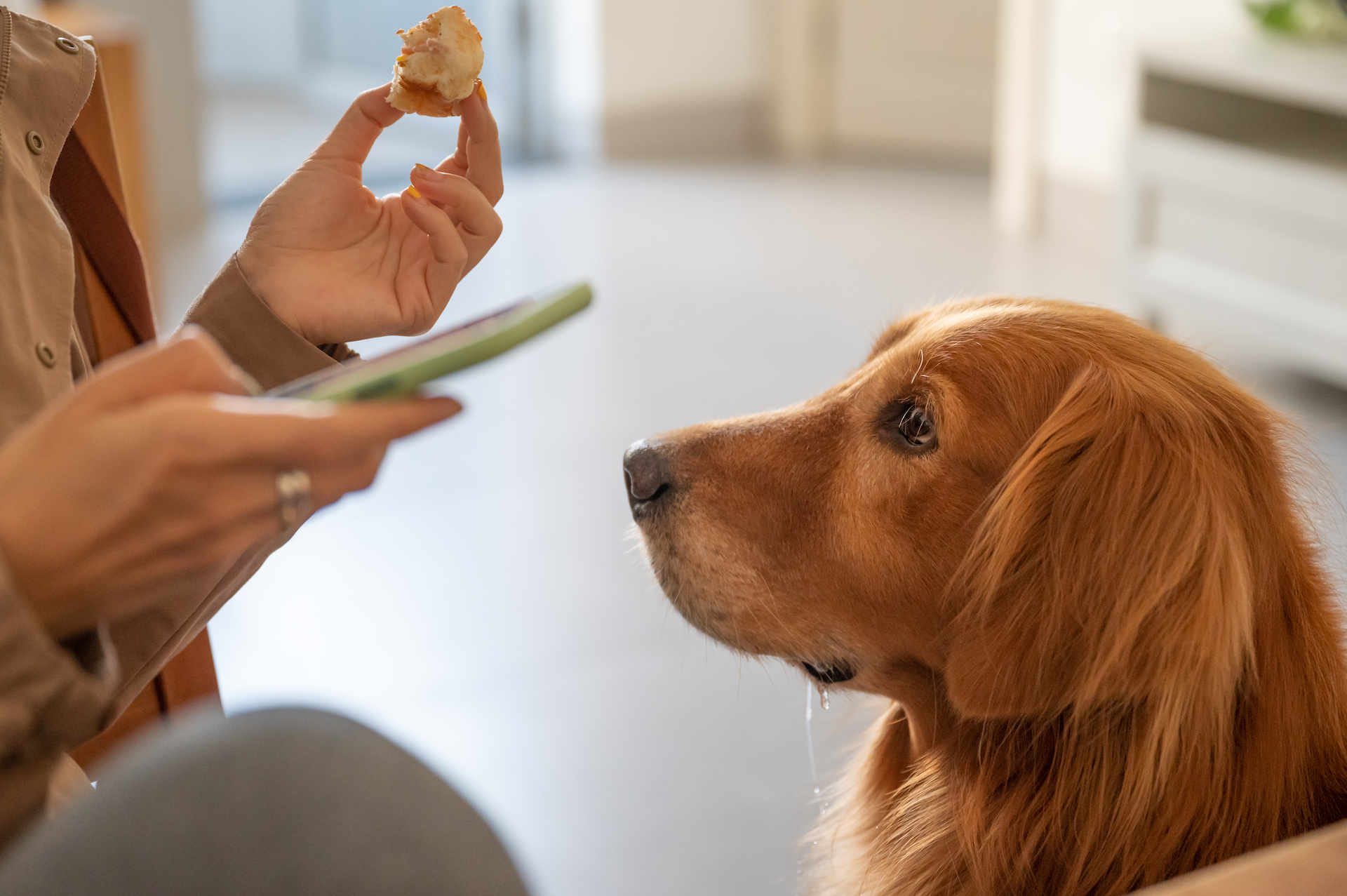Yes, Golden Retrievers do drool. This is a natural action and can be caused by a bunch of reasons such as excitement, hunger, or after exercise. However, certain issues can cause excessive drooling which is a sign of a more serious problem. For example, poisoning or if something is stuck internally.
If you notice excessive drooling, take your Golden Retriever to a vet ASAP.
Read on to find out all the reasons why a Golden Retriever might drool, how to prevent drooling, and more!
Why Do Golden Retrievers Drool?
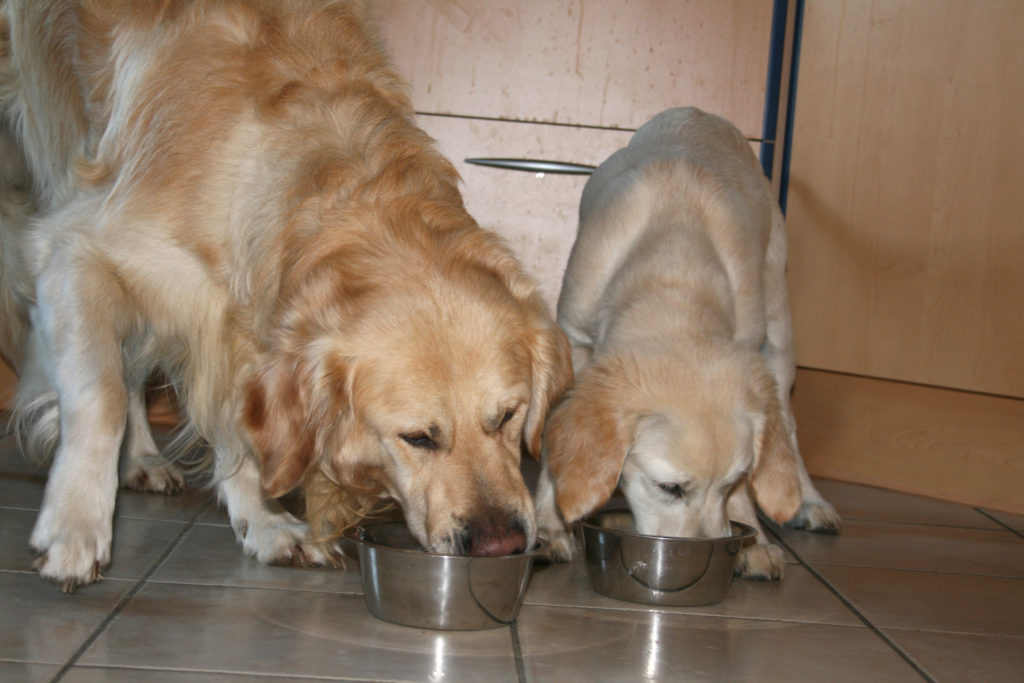
There are a bunch of reasons why your Golden Retriever might be drooling in their daily lives. This is usually a direct response to one of the reasons listed below and it will usually stop after a short time.
Your Golden Retriever might drool because of:
- Excitement: Golden Retrievers are playful, social creatures so they can get excited easily. This could be from seeing their favourite person, a treat, a toy, or just from some attention.
- Anticipating food: Golden Retrievers love their food. As soon as they realise there’s food, they might start drooling. This could be when you start feeding them or if they just smell a treat.
- Intense exercise: You’ll sometimes find that your Golden Retriever drools after exercise, particularly after intense exercise.
What Does Excessive Drooling Mean?
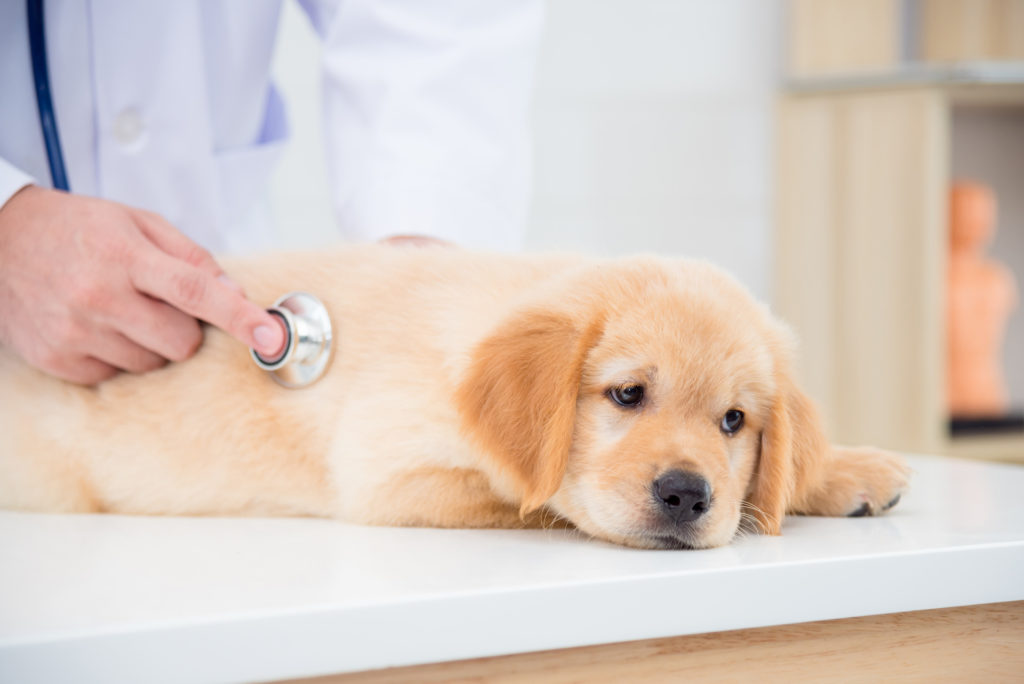
Though Golden Retrievers do drool, if they’re drooling excessively it could be a sign of a bigger problem.
There isn’t a fixed amount of drooling that is deemed excessive. But as a general rule, if the drooling is continuous and uncontrollable, then it could be an issue.
Problems that cause Golden Retrievers to drool excessively are:
- Poisoning: Certain foods can wreak havoc on a Golden Retriever’s digestion and some are even poisonous. Check out the full list here, but always avoid chocolate, onion, garlic, and alcohol.
- Anxiety: An anxious dog might drool as a direct response to how they’re feeling. This can be from being home alone, scared, or even of a certain noise.
- Heatstroke: When exposed to too much heat, Golden Retrievers can develop heatstroke. Since they’re double-coated, Goldens get extra hot. Look out for fever, vomiting, and a red tongue as other signs.
- Dental problems: Tooth decay, tooth fractures, tatar, and other dental issues can cause increased drooling. If you notice swollen or bleeding gums they’re probably related. Refusing to eat and crying in pain are key symptoms of a dental problem too.
- Digestive issues: An internal blockage or twisting of the stomach can cause bloating and pain in Golden Retrievers. When they can’t vomit the trapped food and they’re unable to expel the gas, they start drooling.
- Stuck objects: If your Golden Retriever has something stuck in their mouth or throat, they’ll be in pain which can lead to drooling. Objects include bones, plastic, string, and just about anything they eat can potentially get stuck. This is extremely dangerous as it can block their airways.
- Rabies: Dogs need annual rabies vaccinations. If it runs out, your dog could get infected with this deadly virus. Furthermore, you, or any human or animal that gets bitten will also develop rabies.
- Nerve damage: Damage to the trigeminal nerve after an injury or tumor might mean that they struggle to close their mouth fully. Nerve damage can also affect the movement of the facial muscles which can lead to excessive drooling.
- Motion sickness: If your Golden Retriever is drooling when in a car, bus, or any moving vehicle, they might be motion sick. This can usually be sorted out with medication.
- Liver problems: Golden Retrievers are prone to liver problems. With a liver problem, you’d also see uncoordinated behaviour, fatigue, loss of appetite, and pain.
- Kidney issues: Another common cause of drooling in Golden Retrievers, especially when they’re older. Look out for additional symptoms such as swollen stomach, pain, immobility, and lost appetite.
- Seizures: Foamy saliva or drool could indicate that your Golden Retriever is having a seizure. If this is the case, you’ll need to speak to a vet and learn how to best handle your dog when they’re having one.
If you’re worried about your Golden Retriever’s health, the first thing you should do is take them to the vet for a check-up. Once the problem has been diagnosed, it can be treated.
Some of these problems could be fatal if left untreated so make sure you regularly check your Golden Retriever for problems.
Signs That Your Golden Retriever Needs Vet Attention
You should always consult a vet if your Golden Retriever is drooling excessively.
If you spot any of these signs in addition to drooling, then your Golden Retriever needs urgent veterinary care.
Look out for:
- Swollen stomach.
- Visible pain.
- Struggling to stand.
- Extreme tiredness.
- Blood or strong-smelling saliva.
- Lack of appetite.
- Lethargy.
- Changed sleep pattern.
- Difficulty toileting.
Some of these were covered above, but if you notice any of these, something could be seriously wrong. Always err on the side of caution with drooling and make an appointment at the vet.
Can I Stop My Golden Retriever Drooling?
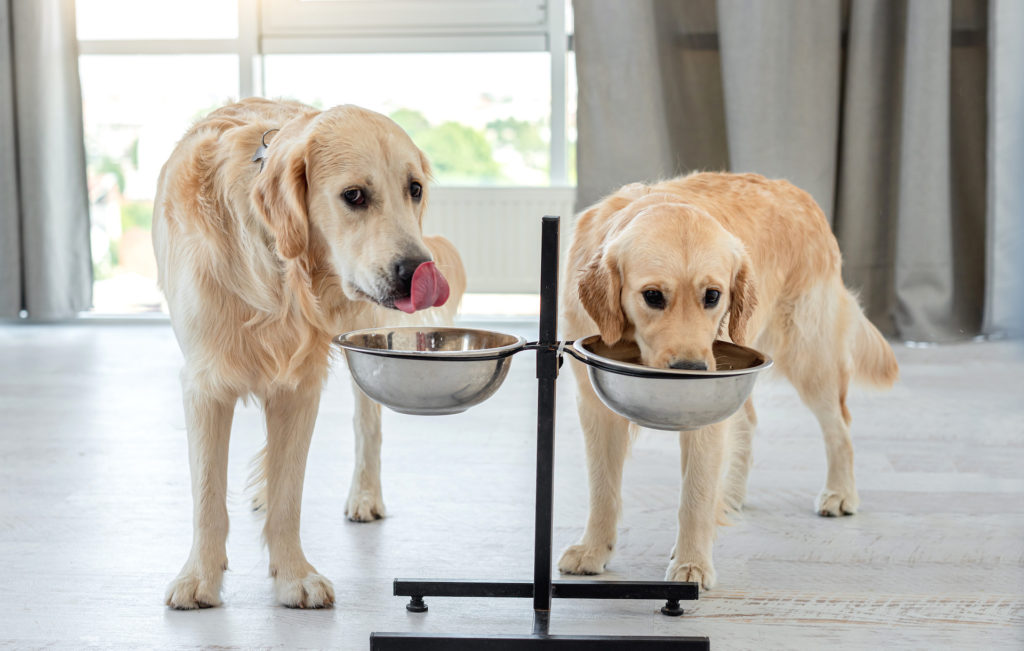
Though you can’t completely stop drooling, there are some things you can do to prevent it, and in this case, prevention is better than a cure.
You can try:
- Finding the cause: Knowing what’s causing the drooling means you can figure out how best to stop it. One of the first things you should check is if there’s something stuck in their mouth that you can unlodge.
- Brush their teeth: Dental issues can cause drooling so maintaining good dental hygiene can avoid such problems. Using a dog-friendly brush and paste, you should brush your Golden Retriever’s teeth at least once per week.
- Calm their anxiety: If your Golden Retriever is having problems based on their anxiety, train them to be independent in your absence. Make sure they get enough exercise and try not to leave them alone for hours on end.
- Monitor their food: Watch out for your Golden eating something toxic that is poisoning them. Make sure they don’t have access to something they shouldn’t.
- Change their diet: If your Golden Retriever seems to be having an allergic reaction that is causing the drooling, consider changing their food. Different brands might have food with ingredients that sit better with your Golden.
- Provide plenty of water: Always make sure that your Golden Retriever has access to clean, fresh water so they can stay hydrated.
- Spend quality time together: Your attention means the world to your Golden Retriever. They’ll feel safer and happier in your company which can alleviate loneliness and anxiety.
Extra tip: Tie a bandana around your Golden Retriever’s neck. Though this won’t prevent drooling, it will prevent discomfort. Otherwise, the drool causes their neck to become sticky and wet and quickly becomes uncomfortable.
Do Golden Retrievers Drool More Than Other Breeds?
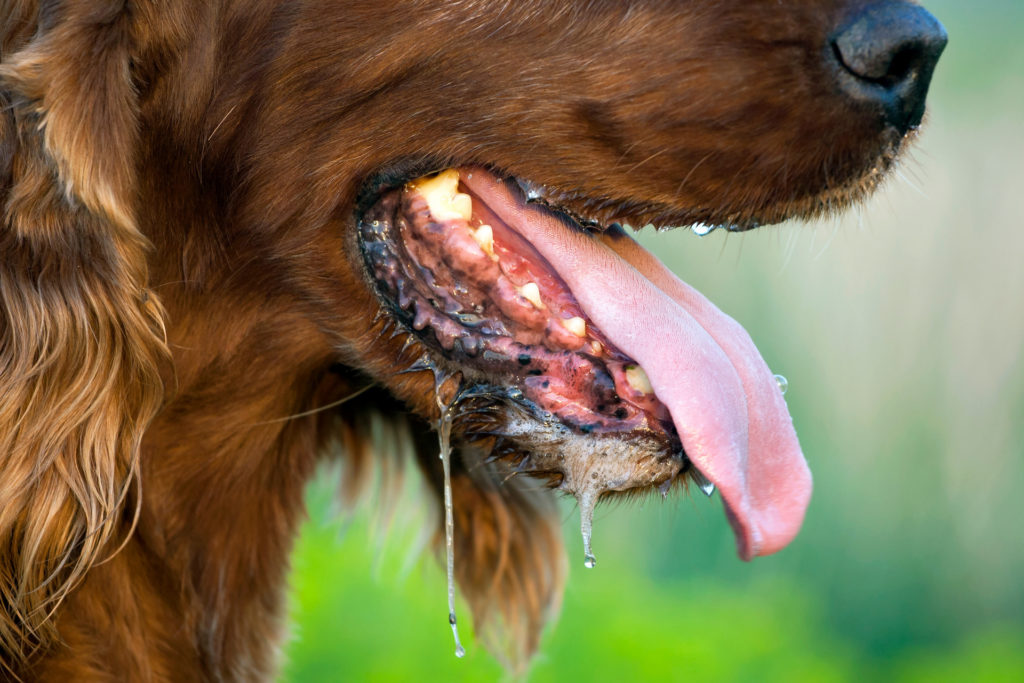
Golden Retrievers do drool more than some other breeds, but it can also vary between individual pets.
Typically, Goldens have jowls (loose flesh on their cheeks and throat) and due to having jowls, loose skin around their mouth, and short snouts, they can’t hold saliva for an extended time. Golden Retrievers will drool more than other breeds with smaller jowls like Corgis or Chihuahuas.
On the flip side of this, certain breeds like Bulldogs, Saint Bernards, and Great Danes are even bigger droolers than Golden Retrievers.
Related Questions
Do Golden Retrievers Drool for No Reason?
No, there’s always a reason why Golden Retrievers drool. They’re more likely to drool than other breeds due to their jowls and loose skin around their mouth but there will always be a reason that triggers it. For example, dental disease or a response to food.
How Much Drooling Is Too Much Drooling Golden Retriever?
The answer to this isn’t fixed – drooling for a specific reason such as over food is fine, but if your Golden Retriever is drooling all day long in large amounts, that isn’t fine. You have to judge what is normal for your pet and watch out for any other symptoms that indicate that something isn’t right.
